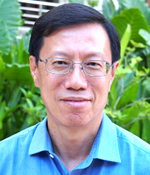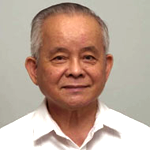Feb 6, 2017 | News
UNESCO is looking for people interested to present research on “Safety for women journalists”.
UNESCO’s previous research studies have shown that while the number of women journalists killed is much lower than those of their male counterparts, women journalists are particularly susceptible to other kinds of gender-related attacks.
According to Guy Berger, UNESCO Director for Freedom of Expression and Media Development, women covering conflict and socio-political turmoil have particular concerns for their safety. Even in non-conflict situations, there is the risk of gender-linked sexual harassment, online abuse, direct and indirect threats, as well as actual physical violations, including rape.
UNESCO is setting up an academic panel for the conference in Cartagena, Colombia on 16-20 July 2017 of the International Association for Media and Communication Research (IAMCR) to look at gender-related media safety issues.
UNESCO hopes that the panel can elevate gender-related media safety issues on the academic agenda by examining the extent, nature, causes and responses related to gender issues in media.
The panel will also seek to uncover the impact of these attacks on the women journalists themselves, their families, colleagues and audiences; and on their societies more broadly.
Presentations with a gender angle could cover any of the areas of research identified in the UNESCO document “Towards a Research agenda on the safety of journalists.”
While there is no budget to support attendance of presenters, the chosen researchers can present on this UNESCO panel and use this status to secure alternative funding, such as from their respective university or organization.
Interested parties can express their interest and a draft abstract (approx. 150 words) by 7 February 2017 to Saorla McCabe, S.McCabe@unesco.org
UNESCO’s research document on media safety can be accessed at http://www.unesco.org/new/fileadmin/MULTIMEDIA/HQ/CI/CI/images/Themes/Freedom_of_expression/safety_of_journalists/Draft_Research_Agenda_Safety_of_Journalists_06_2015.pdf

Jan 13, 2017 | News
 Dr. Ang Peng Hwa, AMIC Chairman d’Honneur, urges the conduct of more research on social media, noting its varied uses and users all over the world in his keynote address.
Dr. Ang Peng Hwa, AMIC Chairman d’Honneur, urges the conduct of more research on social media, noting its varied uses and users all over the world in his keynote address.
He made these remarks at the International Conference on Media, Communication and Sociology (ICOMOS) held at Atma Jaya Yogyakarta University on November 18-19, 2016.
ICOMOS 2016 had as its theme Questioning Locality: Community, Movement and Global Challenge: Moving Beyond Borders: The Shifts in Communications
and Media Studies in Borderless Society.
“The strength of the Internet is not in communication, but in the mobilization of time,” said Dr. Peng Hwa, adding that the Internet also enables the microcoordination of resources and people.
However, to benefit from it, communication scholars must sift the good from the bad elements in social media.
New media empowers people, builds communities and exposes corruption. However, it also has “questionable” elements as it can promote online vigilantism, while empowering people. New media can also expose online personal details about people and embarrassing photos.
It can create echo chamber and bubbles, making people listen only to themselves and their ideas.
Dr. Peng Hwa said all media have inherent values and biases that ultimately shape society. While people shape the medium we use for communication, the medium also shapes us.
He noted that with quick computer time and gadgets, people now give shorter messages and quicker responses, but without much depth of thought.
Research can help people understand communication phenomena, but we need theorizing and scholarship to appreciate new trends
“We may need law and policy to compel balance in the media space and restore the fairness doctrine where both sides are presented,” asserted Dr. Peng Hwa.

Nov 24, 2016 | News
 Live streaming of Deconstructing toward Understanding: The Communication Content and Style of President Duterte. 25 November 2016 from 9 am to 4 pm (Philippine time). Visit amic.nowplanet.tv.
Live streaming of Deconstructing toward Understanding: The Communication Content and Style of President Duterte. 25 November 2016 from 9 am to 4 pm (Philippine time). Visit amic.nowplanet.tv.
It will also be available in Inquirer.net Facebook Page (Live) and Twitter account.
Broadband facility for the live streaming is provided by NOW Corp.
The forum is organized by the Asian Media Information and Communication Centre, Inc. (AMIC) with the Philippine Women’s University (PWU) and Asian Institute of Journalism and Communication (AIJC)
Nov 8, 2016 | News
President Rodrigo R. Duterte is a communication phenomenon who needs “deconstructing” to be better understood and appreciated.
On November 25, some of the country’s top social scientists, communication scholars and practitioners will join government spokespersons in a forum aimed at dissecting the communication style that made Rodrigo R. Duterte capture the imagination of 16 million voters, receive high trust rating, and mobilize passionate defenders including the so-called “social media trolls.”
Deconstructing towards Understanding: the Communication Content & Style of President Rodrigo R. Duterte is being organized by the Asian Media Information and Communication Centre, Inc. (AMIC). It will be held at the Philippine Women’s University from 9 a.m. to 4 p.m.
According to AMIC chairman Dr. Crispin C. Maslog, deconstruction is a social science method of critical text analysis that does not actually mean “demolition.” The term was coined by French philosopher and semiotician Jacques Derrida in the 1960s. Social scientists use this as method to discover, recognize, and understand the underlying assumptions, ideas, and frames that form the basis for thoughts and beliefs.
Among the confirmed speakers are Presidential Spokesman Ernesto Abella, presidential social media expert Nicanor “Nic” Gabunada Jr., communication experts Charlie Agatep and Ramon “Bong” Osorio, sociolinguist Prof. Farah Cunanan, political scientist Dr. Clarita Carlos, historian Prof. Clement Camposano, and journalists Ellen Tordesillas, Marites Vitug, John Nery and Ging Reyes.
AMIC is a media international non-government organization (INGO) committed to promote communication and media development in the Asia Pacific region. It seeks to provide a platform for discussion of current and emerging communication issues.
During the event, AMIC will also inaugurate its new headquarters at PWU. Established and registered in 1971 as a non-profit NGO in Singapore, AMIC transferred its operation to Manila, Philippines in 2015. It is managed by the Philippine Women’s University-Asian Institute of Journalism and Communication consortium.
Those interested to attend must pre-register with Mr. Anthony G. Roman (09276996475) or Ms. Nora O. Gamolo (09323125802). You may also call AIJC at + 63 2 743-4321. Register here.

Nov 3, 2016 | News
 This November 18, 2016, the Westminster Institute for Advanced Studies and the Communication and Media Research Institute of the Westminster School of Media Arts and Design is marking the global release of Professor Cherian George’s new book Hate Spin: The Manufacture of Religious Offense and its Threat to Democracy.
This November 18, 2016, the Westminster Institute for Advanced Studies and the Communication and Media Research Institute of the Westminster School of Media Arts and Design is marking the global release of Professor Cherian George’s new book Hate Spin: The Manufacture of Religious Offense and its Threat to Democracy.
Published by the MIT Press, the book was earlier released in September 2016. Authored by Prof. Cherian George, this tome touches on religious intolerance, one of the main problems that beset many nations today.
Prof. George sees religious intolerance not as random and isolated, but part of a dangerous pattern of politics that he calls ‘hate spin’. A two-pronged weapon of identity politics, hate spin combines incitement to hatred with orchestrated outrage against perceived insults. It is not spontaneous, but manufactured by political opportunists to mobilize supporters and marginalize opponents.
He argues that hate spin requires a public response that is at least as resolute as the campaigns engineered by modern purveyors of intolerance.
Prof. George is Associate Professor in the Department of Journalism at Hong Kong Baptist University. He is editor of the Asian Journal of Communication, one of two journals published by the Asian Media Information and Communication Centre, Inc.

Sep 29, 2016 | News
 AMIC Board Chair Crispin C. Maslog has lamented the “martial law amnesia” that has affected most Filipinos today, especially the millennials.
AMIC Board Chair Crispin C. Maslog has lamented the “martial law amnesia” that has affected most Filipinos today, especially the millennials.
Maslog aired his concern in mass communication student convocations at the University of Santo Tomas September 17 and at the University of the Philippines Los Banos May 26, and over GMA’s Balitanghali news program aired Sept. 22.
During the Philippines’ martial law era from 1972 to 1981, human rights violations were rampant. The Marcos regime and its cronies plundered the Philippine economy. For these human rights violations and corruption, Marcos was ousted in 1986 by a peaceful Filipino “People Power” revolution.
Maslog warned against forgetting the past and allowing the Marcoses to return to power.
“Moving on without justice being served is not moving on – it is giving up,” reminded Maslog.
Maslog is a former journalist with Agence France-Presse, and former communication professor at Silliman University and University of the Philippines Los Baños.


 Dr. Ang Peng Hwa, AMIC Chairman d’Honneur, urges the conduct of more research on social media, noting its varied uses and users all over the world in his keynote address.
Dr. Ang Peng Hwa, AMIC Chairman d’Honneur, urges the conduct of more research on social media, noting its varied uses and users all over the world in his keynote address.
 Live streaming of Deconstructing toward Understanding: The Communication Content and Style of President Duterte. 25 November 2016 from 9 am to 4 pm (Philippine time). Visit
Live streaming of Deconstructing toward Understanding: The Communication Content and Style of President Duterte. 25 November 2016 from 9 am to 4 pm (Philippine time). Visit 
 This November 18, 2016, the Westminster Institute for Advanced Studies and the Communication and Media Research Institute of the Westminster School of Media Arts and Design is marking the global release of Professor Cherian George’s new book Hate Spin: The Manufacture of Religious Offense and its Threat to Democracy.
This November 18, 2016, the Westminster Institute for Advanced Studies and the Communication and Media Research Institute of the Westminster School of Media Arts and Design is marking the global release of Professor Cherian George’s new book Hate Spin: The Manufacture of Religious Offense and its Threat to Democracy.
 AMIC Board Chair Crispin C. Maslog has lamented the “martial law amnesia” that has affected most Filipinos today, especially the millennials.
AMIC Board Chair Crispin C. Maslog has lamented the “martial law amnesia” that has affected most Filipinos today, especially the millennials.